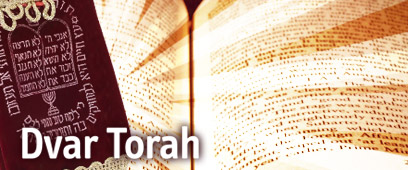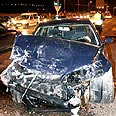

The rabbis offer different explanations of "tirgezu." Some translate it as quarrelsome: R. Eleazar comments (BTalmud Tan. 10b): "Joseph said to his brethren, ‘Do not argue along the way about questions of law - lest the road become unsafe.'" I would explain this as – if you are on the road, pay attention to what you are doing.
But Bereishit Rabbah (94:2) gives another reason why the road may become unsafe – this Midrash explains "tirgezu" as a kind of a "hurried anxiety"; Joseph told his brothers not to let their anxiousness to return to their father as quickly as possible, lead them to take "great strides."
The Kotzker Rebbe explains: "It took several days to travel from Egypt back to Canaan, but they were thinking, 'we can't wait to tell our father the news – he'll be so happy - if we take big strides, we can make it in a day and a half!' In other words, Joseph senses this and warns them, 'don't speed on the highway!'
What Joseph knew
Perhaps Joseph intuitively knew that speeding was dangerous – but a recent study in Israel proves the point. Dr. Elihu Richter, the director of the Hebrew University-Hadassah Center for Injury Prevention, looked at why road deaths dropped by an incredible 33.9 percent in England between 1990 and 1999.
The answer: Reducing the speed of drivers – mostly with speed cameras. And Israel has finally taken note. The Transportation and Internal Security ministries are actually close to introducing a much wider speed camera system. Once in place, we can all expect to be driving a bit slower - and to see the death toll tumble by an expected 30 percent or more. Tickets – the enforcement part of the system - more than cover the cost of the new system.
The real tragedy, Dr. Richter pointed out in a recent interview, is that the speed camera network set up in the UK 15 years ago could have been replicated here immediately, saving, over that period, about 3,140 Israeli lives. In other words, it's just tragic that speed cameras are being set up – so slowly.
Each morning we read Psalm 20, about the seemingly invincible enemies, including the Egyptians, who believed in their military equipment to provide them with victory: "Some with chariots and some with horses, but we – we call out the name of our God. They tumbled and fell, but we arose and were encouraged."
I think today, we believe in our chariots and horses – our cars – to protect us, instead of believing in our God who requires us to always take care to act in safe ways, and to moderate our own behavior.
Car accidents, which kill more people each year than terrorist attacks, should be on our list of enemies of the State. But I would suggest that once again, our enemy is only seemingly invincible – for this time we have speed cameras as a secret weapon.
Next time you get in your car, remember that every study says that staying within the legal speed limits - a small reduction in speed - is the choice between life and death. What is the difference between "those who fall and never arise again, and those who arise and are strengthened?" Nothing more and nothing less than the speed they were traveling.
Rabbi Paul Arberman is the rabbi of Kehillat Yedid Nefesh, Modiin















